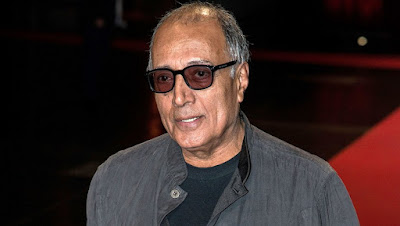Abbas Kiarostami, Palme d'Or-Winning Filmmaker, Dies at 76
The Iranian director's 1997 film 'Taste of Cherry' won the top prize at the Cannes Film Festival.
Iran's official news agency IRNA said Kiarostami died in Paris, where he had gone for cancer treatment last week after undergoing surgery in Iran earlier this year.
He wrote and directed dozens of films over a career spanning more than 40 years. Taste of Cherry, which told the story of an Iranian man looking for someone to bury him after he killed himself, won the top award at the Cannes Film Festival. Kiarostami also wrote and directed Certified Copy, a 2010 film starring Juliette Binoche.
Just last week, Kiariostami was among the 283 new members invited to join the Academy of Motion Picture Arts and Sciences.
The filmmaker said at a 2014 appearance in Syracuse, N.Y., that Taste of Cherry was his only movie he had not watched since he made it. He said it took him back to a period in his life he preferred not to think about. The pic was banned in Iran for supposedly encouraging suicide.
"But in truth," he said, "it is a suggestion to live."
Martin Scorsese remembered the filmmaker in a statement to The Hollywood Reporter: "I was deeply shocked and saddened when I heard the news of Abbas Kiarostami’s death. He was one of those rare artists with a special knowledge of the world, put into words by the great Jean Renoir: 'Reality is always magic.' For me, that statement sums up Kiarostami’s extraordinary body of work. Some refer to his pictures as 'minimal' or 'minimalist,' but it’s actually the opposite: Every scene in Taste of Cherry or Where Is the Friend’s House? is overflowing with beauty and surprise, patiently and exquisitely captured.
Scorsese continued: "I got to know Abbas over the last 10 or 15 years. He was a very special human being: quiet, elegant, modest, articulate, and quite observant — I don’t think he missed anything. Our paths crossed too seldom, and I was always glad when they did. He was a true gentleman, and, truly, one of our great artists."
Among Kiarostami's other films was Close-Up (1990), which told the true story of aman who impersonated a filmmaker and tricked a family into believing that he would put them in a movie.
The 2000 film The Wind Will Carry Us follows journalists from a city who go to a village to write about the death of an old woman, but they have time to learn about and appreciate rural life as the woman lives longer than expected.
Ten (2002) features a female taxi driver in Tehran and her conversations with passengers. While it attracted some strong reviews, critic Roger Ebert wrote, "I am unable to grasp the greatness of Abbas Kiarostami." He said the filmmaker's critical reputation was unmatched, but his films "are meant not so much to be watched as to be written about; his reviews make his points better than he does."
In Certified Copy, Binoche plays a French woman who goes on what appears to be a first date with a British writer. Tensions quickly erupt between the two, and eventually viewers start to suspect that these two may actually know each other — and perhaps had once been married.
For that film and others, Kiarostami had to work outside Iran because of the difficulties in making movies there.
"For a long time, the Iranian government has put a spoke in the wheel of independent filmmakers," he said at a 2010 news conference.
Kiarostami is survived by two sons, Ahmad and Bahman, who work in multimedia and documentary film.
source: www.hollywoodreporter.com

No comments:
Post a Comment